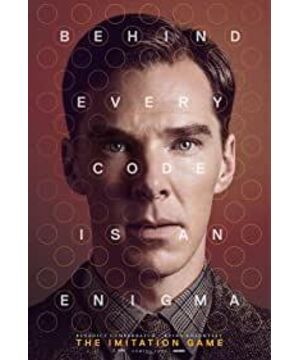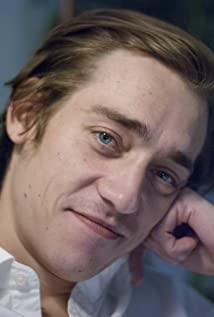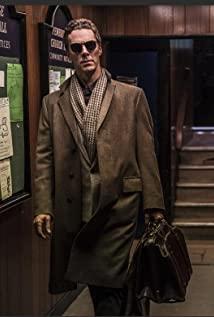"The Imitation Game" tells the story of the legendary life of "Father of Artificial Intelligence" Alan Turing. What the film chooses is not the daily work of Turing, but the main line of his assisting the government in deciphering Enigma, reversing the situation of World War II, and using nesting and inserting stories from other time points to run through Turing's life. Although the film is a biographical film, it cannot be understood as a real event. For example, the deciphering team in the film seems to be mainly six people, but the actual situation is that the British side recruited thousands of people to participate in the deciphering work. Moreover, the German side is also constantly improving the encryption method. The two sides are similar to a game, rather than a unilateral breakthrough like in the movie. The machine called "Christo" in the movie is actually called Bombe.
Regarding the technique, in addition to the editing methods of several J-cuts, the most important thing is the out-of-order narrative technique, which adds a sense of suspense to the film and concentrates the attention of the audience. So from the viewing experience, even if it is two hours long, it will not feel boring. There's a very well shot scene where Turing gets the code-breaking inspiration in a bar, and all the shots are stabilized before the inspiration to get the tone of a day-to-day drama, but when they finally get the inspiration , and immediately switched to handheld shooting, the movement of the picture increased, and the editing became faster. With the BGM, the team's excitement at the EUREKA moment was very well rendered, which is also a common processing method.
In addition, because the subject matter itself is related to war, so unlike other biographical films, Turing encountered many resistances in the process of deciphering, including external resistances, such as the commander's distrust and the distrust of the people around him. understanding, conflicts between colleagues, etc. There are also the inner level of the characters, such as Turing's own entanglement.
The film is called "The Imitation Game", and it is related to the famous Turing test mentioned in the interrogation process of the film-a screen is used to separate the tester from the testee, and the testee is asked random questions through the keyboard. After multiple tests, if more than 30% of the testers cannot determine whether the testee is a human or a machine, then the machine is considered to have artificial intelligence. This game of using machines to imitate human beings is exactly what Turing hopes to achieve. The machine he later fell in love with also hopes to imitate human intelligence through it. Turing thought that by the year 2000, machines could reach this level. But at the moment we are still behind that forecast.
From another point of view, Turing was bullied and treated unfairly when he was a child, and he was a homosexual group that was not accepted at the time, so in order to survive, he also learned to imitate. Just as when he was talking to the principal, he said he didn't know Christophe at all, and when facing Joan, he said he didn't care about him at all. He himself is an unusual person, but he used the curtain between people and learned to hide his true thoughts and imitate an ordinary person. Therefore, his life is also an imitation game. And Turing's deciphering organization itself is completely unknown to the world. They do not send the news directly to others, but disguise themselves as another organization to talk to the world. In this sense, the entire code-breaking team can also be called an imitation game.
Communication and understanding between people is like the model of the Turing test. People can only judge each other through information, but no one can understand what is behind the curtain. If we look at Turing through the curtain, we see that he was a great scientist, he inspired the invention of the computer, helped decipher the German cipher machine, saved thousands of people, and was a homosexual. But if we look at his life from behind the curtain, we will understand that when he was born, he was a different person, and society wanted him to appear the same. In the movie, Joan taught him that he told a crappy joke about team members needing to give gifts and tell jokes, giving each person an apple. His imitation game is a bit botched because he is inherently different, but society demands that he be like everyone else. It's just, like the phrase repeatedly mentioned in the movie: sometimes the most unexpected people can do the most unimaginable things.
Turing was finally pardoned by the Queen of England in 2013, but this pardon after 61 years cannot be considered timely no matter how you look at it. But perhaps, this is how human society grew up. An era that can accept Turing has finally arrived. If he is in this era, maybe he does not need to imitate as in the past, but everything has passed. The father of computer science, the father of artificial intelligence, with the information provided by the team he led during World War II, ended the war two years ahead of schedule and indirectly saved 14 million lives, any one of these achievements is enough for him. Known as the "great man", but he is often unknown. But today, as we walk through the curtain and learn this back story, I think those of us who have enjoyed the convenience of the computer and information age, those of us who have enjoyed the peaceful fruits of the post-World War II period, should all have reverence for him of gratitude.
View more about The Imitation Game reviews











